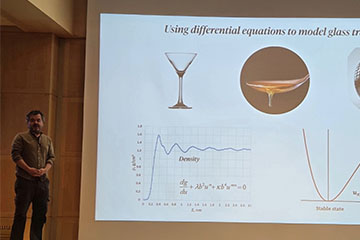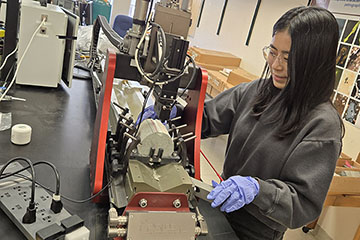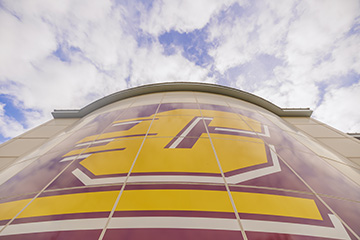CMU research team tackles wetland management in Michigan’s state game areas
Project aims to help the DNR improve water quality, protect ecosystem health, and enhance wildlife habitats
A team of researchers from Central Michigan University’s College of Science and Engineering is working to help the Michigan Department of Natural Resources (DNR) better manage some of the state’s most vital wetland habitats. Funded by the DNR, the four-year project is now entering its second year and is focused on two major locations: the Shiawassee River and Pointe Mouillee State Game Areas.
“These areas are used for recreation, including waterfowl hunting in the fall, but they also serve as important ecosystems,” said Dr. Rod Lammers, the project’s lead investigator and a faculty member in CMU’s School of Engineering and Technology. “We’re looking at how different ways of managing these wetlands affect things like water quality, greenhouse gas emissions, flood mitigation, plant life, and bird usage.”
Each site contains multiple "impounded wetland units", wetlands completely surrounded by dikes or levees, allowing DNR managers to control water levels throughout the year. Some units are flooded year-round, resembling more natural wetlands, while others are drained and even farmed during summer months, then re-flooded just before hunting season.
Lammers, along with collaborators Drs. Amanda Suchy and Don Uzarski from CMU’s Department of Biology, hope their research will give the DNR data-driven insights to guide future management decisions.
“This is a very applied research project,” Lammers said. “Our goal is to help the DNR effectively manage these wetlands to maximize ecosystem services, like improving water quality and providing diverse habitat, while still supporting recreation.”
The interdisciplinary team also includes Earth and Ecosystem Science (EES) Ph.D. student Bridget Wheelock, research technician Maureen Aloff, and undergraduate students Ainsley Reser and Julia Shablin. This summer, Reser will present her findings at the Society of Freshwater Science conference in Puerto Rico, showcasing the important work happening at CMU to a national audience.
Two new undergraduates will also be joining the project this summer as the team continues collecting and analyzing data.
With two years of work still ahead, the research could have a significant impact on how Michigan manages its state game areas, balancing conservation and recreation for years to come.




